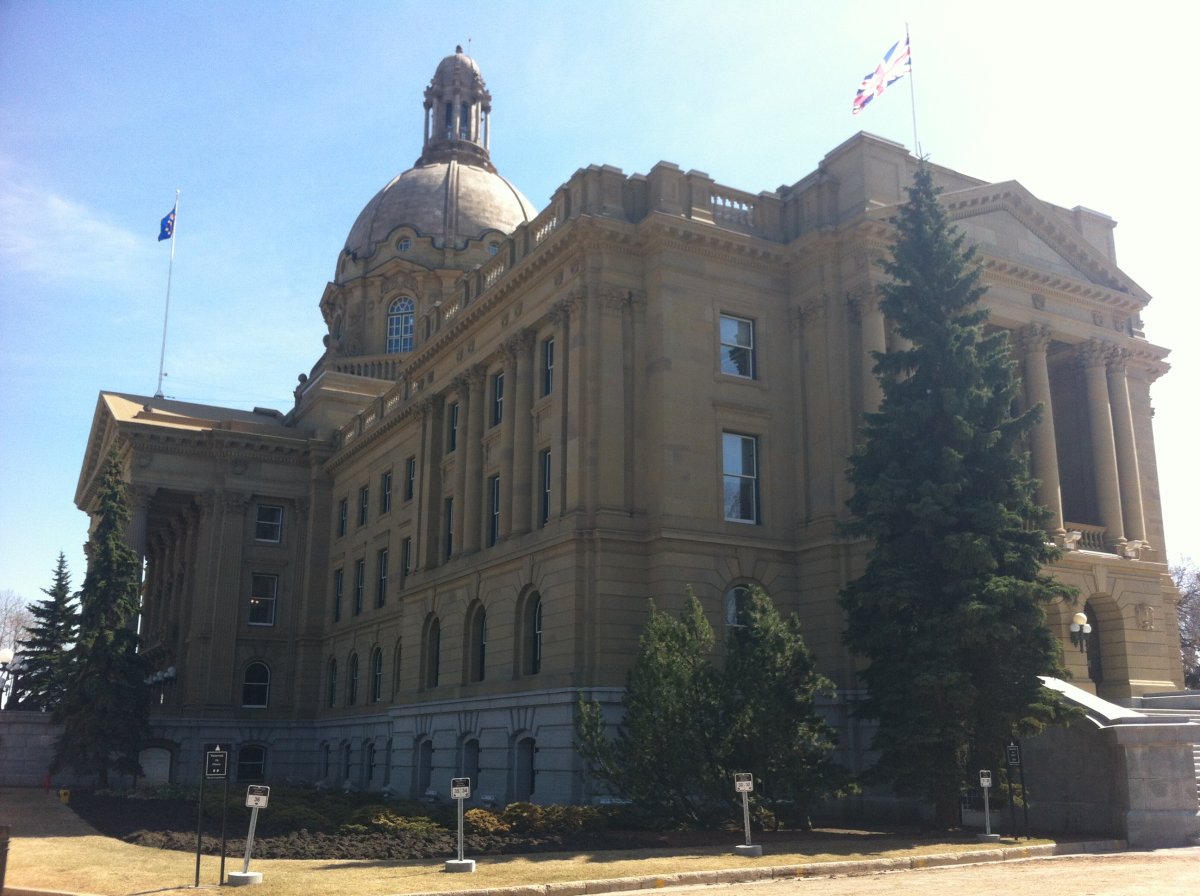EDMONTON – Alberta’s proposed Children First Act will erode privacy rights and undermine Albertans’ control over their own health and personal information, privacy commissioner Jill Clayton says.

Alberta’s Information and Privacy Commissioner criticized the sweeping new law Wednesday, saying the government hasn’t done enough to make sure those subject to the act — mainly at-risk children and their families – will have their privacy protected.
The proposed new legislation allows those who work with at-risk children to talk to one another about the people they serve; those on the list include child welfare workers, police, teachers and foster parents, among others.
These front-line workers have consistently said rules that restrict them from sharing information make it harder to do what is right for kids in care.
Clayton said she recognizes the need to share information but remains concerned about the privacy implications of the bill, known as Bill 25.
“Privacy is a fundamental right – the ability to know … who has information about you and to know what they’re using it for, and to be able to exercise your rights if you don’t like it,” Clayton said in an interview Wednesday.
“I want to ensure information is being shared for specific purposes; there can be a danger of information being collected and used for one purpose, and then appropriated and used for other secondary purposes.”
- Alberta to overhaul municipal rules to include sweeping new powers, municipal political parties
- Canada, U.S., U.K. lay additional sanctions on Iran over attack on Israel
- No more ‘bonjour-hi’? Montreal mayor calls for French only greetings
- Trudeau says ‘good luck’ to Saskatchewan premier in carbon price spat
Clayton said some of the personal information could be shared with organizations that are not subject to Alberta’s existing privacy rules, and that the law allows agencies to share information about children and families whenever they are “enabling or planning” to provide services — language she said is too broad.
Clayton said the bill makes privacy law more complicated. Instead, she said, front-line workers need to be better educated about how to appropriately share information under existing laws.
At the very least, she said the law should be amended to include mandatory privacy impact assessments, a duty to keep records when information is disclosed, and a requirement that privacy breaches be reported to her office. A privacy impact assessment is a review of the affect a policy or process will have on a person’s privacy rights.
Human Services Minister Dave Hancock said recent cases have highlighted the need to quickly share information to meet the needs of children at risk, and previous instructions to share information between government departments only “spawned a whole industry of protocol agreements” that took years to write.
“In lots of circumstances there isn’t a barrier (to sharing information), but people don’t read those (laws) technically, or they ask for legal advice and they default to no,” Hancock said.
“What we wanted to do is to make it clear that if you’re inside the tent, and you’re working in the best interests of the health, education or safety of children, you should be working together and sharing that information. That’s the first piece.”
Hancock said police, social service workers and teachers “all have confidentiality (rules) and they all know what they can’t take home or put out on the street.”
Hancock said the department made changes to address some of Clayton’s concerns and the province will also increase education so front-line workers better understand existing laws.
“We’ve had consultations with the privacy commissioner, I wouldn’t say we agree on everything,” he said. “They come from a different perspective on privacy issues.”
NDP critic Rachel Notley said the privacy implications will mainly affect low-income and aboriginal groups, who make up the majority of the clients served by Human Services.
She said it is clear that front-line workers need to share information, but the law goes too far.
“This legislation does not do what the minister says it is doing; it’s not just about keeping children safe. This legislation is far broader – it’s too broad,” Notley said.
“There are going to be too many situations where people who are not qualified will be making decisions based on the wrong criteria, disclosing information that is not relevant to the safety of the child, let alone the best interests of the child.
“They need to put checks and balances in place. … This law is like a blank cheque.”


Comments